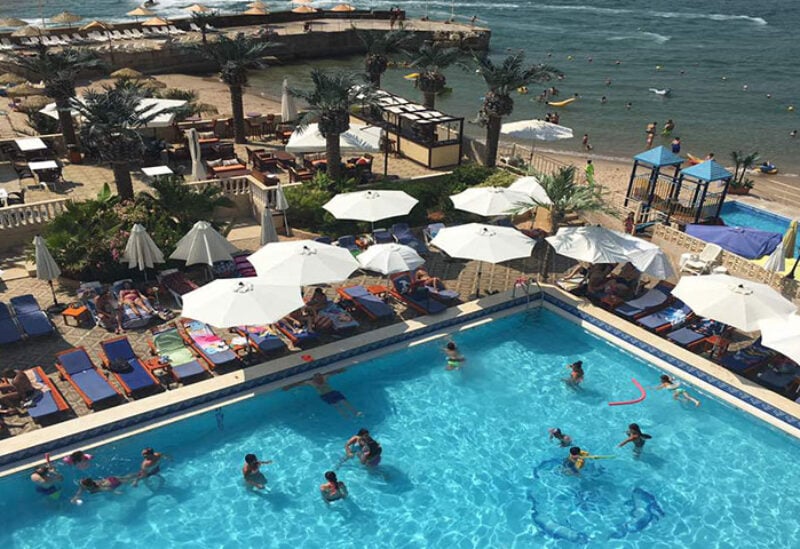
High occupancy rates in beach resorts give a boost to the tourism sector which has been struggling from pandemic
Beach Resort owners are counting on a promising touristic season this year, even though the country is mired in a catastrophic economic and financial crisis threatening of total collapse.
Domestic tourists, who previously preferred spending their summer vacation abroad mainly in Turkey, Egypt, and Europe, were forced to stay in Lebanon this year, as a result of devaluation. The financial and economic crisis accompanied with an unprecedented drop in the value of the Lebanese pound against dollar has undermined their ability to travel, therefore looking for domestic tourism.
“Beach and Seaside Resorts are witnessing a huge demand this summer,” said Jean Beyrouthy President of the Syndicate of Touristic Seaside Resorts to Sawt Beirut International (SBI). He affirmed that all seaside chalets and hotel rooms are fully booked for the next three months, adding that individuals that own a wide range of these chalets preferred using it rather than leasing it this summer.
Tired of lockdowns
Unlike previous years, the majority of demand comes from locals, according to Beyrouthy. The reason behind this increase is that people are tired of quarantine and lockdowns, as a result of coronavirus pandemic. “People are eager to spend a leisure holiday with their families,” he said. The second reason is attributed to the dire economic situation and the deterioration in the value of the local currency, which prevented many Lebanese, who used to travel annually, from securing dollars to travel abroad. “It is true that there are many hurdles that prevent Lebanese from spending on luxury services, but touristic services have become very cheap and competitive compared to abroad,” said Beyrouthy.
Counting on remittances
While three-quarters of the Lebanese live below poverty, the fully occupied resorts, hotels, and restaurants raise many questions. In this context, Beyrouthy confirmed his astonishment regarding this reality, and said: “A large array of citizens depend on remittances transferred by expatriates.” He added that the majority of the demand comes from the youth group, not exceeding 30 years old.
The Secretary-General of the Syndicate of Touristic Seaside Resorts Ghassan Abdallah told SBI that demand from Lebanese expatriates is still shy, and it is limited to a small percentage of people coming from European countries mainly Sweden, and Britain, as well as Brazil. There is also shy demand from Iraqis and Jordanians. The average stays range between 10 and 15 days.
Average room rates nosedive
Even though demand have been unleashed, resentment prevails among beach resort owners. The reason, according to Beyrouthy, is that institutions are receiving only 30 percent of the income they were receiving before devaluation. The average hotel and chalet room rates have plummeted by 70 percent. For example, the room rate that was between $100 and $120 dropped currently to $40. He added, “It seems that we will not benefit from the Ministry of Tourism’s decision to charge hotel room tariffs in fresh dollars from foreign tourists, which Turkey, Egypt, Jordan and Greece have previously approved, because the largest proportion of reservations are from residents.”
Dramatic impact of devaluation
In this context, Abdallah explains that the resorts’ revenues have dropped around 90 percent this year. He said that the daily revenues of swimming pools and chalets used to exceed 80 million LBP in the past (which is equivalent to $60,000), but revenues are not exceeding 60 million LBP currently, which is equivalent to $3,800 dollars per day on the black market exchange rate. He added that a wide range of the expenses are paid in fresh dollars, such as detergents, maintenance, furnishings, and others. Additionally, most institutions have increased employees’ salaries by more than 50 percent which increased the cost, according to Abdallah.
Abdallah believes that the demand this summer will be limited to Lebanese, whether residents or expatriates, wondering: “How can a country that is witnessing a medicine, and hospital crisis, and a shortage of fuel will attract tourists? Beyrouthy added: “If politicians change their practices, tourism would recover rapidly.”